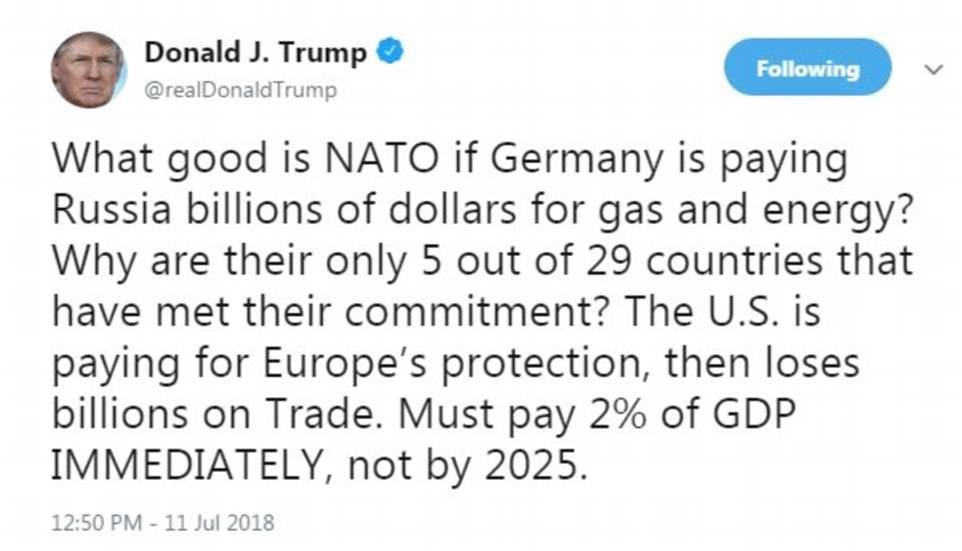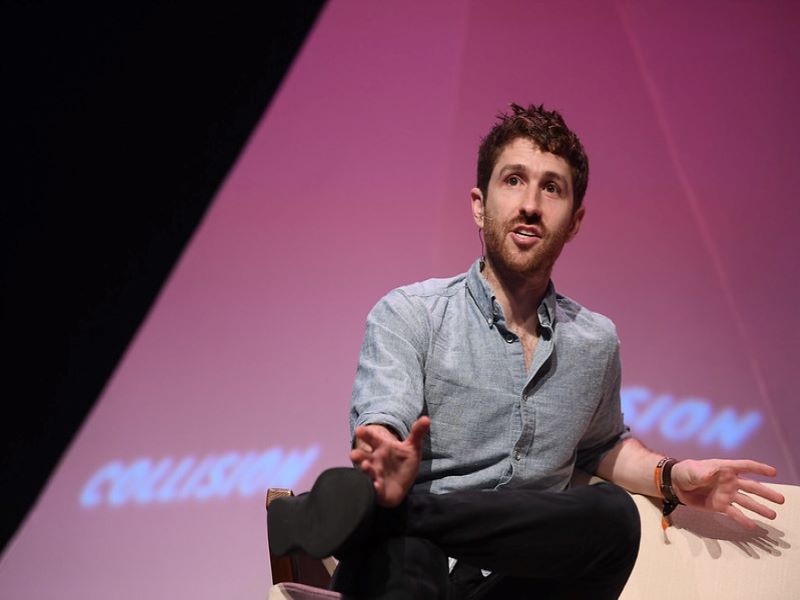What are the lasting impacts of mis and disinformation during the occurrence of and directly following a disaster or emergency? In this article, Emma Curtis touches upon the disinformation present in the cycle of disaster, as well as the consequences of fake news and false reporting.
Tag: Twitter
Should Facebook and Google pay for news?
The NATO Association of Canada’s editors share their thoughts on Australia’s new media code, and its dispute with Facebook and Google.
Two Cents for Defence
As NATO nations battle over “burden sharing,” Arjun Singh explores the ‘2%’ spending rule and Donald Trump’s record on ensuring allies meet it.
Was Twitter Right to Ban Donald Trump?
In this feature of the Editor’s Forum, the program editors at the NATO Association weigh in on whether banning Donald Trump from Twitter was the right decision.
QAnon and the Tale of America’s Subjective Reality
The rise of conspiracy theory communities on the Internet… And in American politics Conspiracy theories are not a new phenomenon. However, in today’s digital environment, their role and importance has drastically changed. While these movements were previously mainly confined to obscure and secluded forums of the Internet, they now proliferate and flourish anywhere from Twitter Read More…
Documentary Review: Netflix’s “The Social Dilemma”
Netflix’s “The Social Dilemma” perpetuates exactly what it aims to prevent. In this article, Emilio finds that the film provides a good overview of the societal challenges caused by social media but has glaring flaws that prevent it from reaching wider audiences.
Forums or Publishers? Social Media Platforms under Stricter Content Policies
Over the last few weeks, social media platforms hardened their content policies regarding misinformation and hate speech. In this article, Chloé Ketels analyzes the implications of this trend.
Sorting Fact From Fiction: Trolls, Bots, and the Erosion of Informed Debate
Ryan Atkinson discusses the dangerous implications of future political influence operations, arguing that research must work to understand how current operations will incorporate advancing technologies.
A Propaganda Machine for the Internet Age, Part IV: The Online Army
In Part Four of a four-part series, Alexander Sawicki details the rise of a new type of propaganda machine; one tailored to fit a modern, inter-connected, and technologically dependent society.
Threats, Trolls, Twitter Bots: Interview with Ilya Maslyanskyy
How did Russia learn to use the Internet to strengthen authoritarianism? Benson Cheung interviews Ilya Maslyanskyy about how Russia learned to use threats, trolls, and Twitter bots to control the Internet since 2011.










